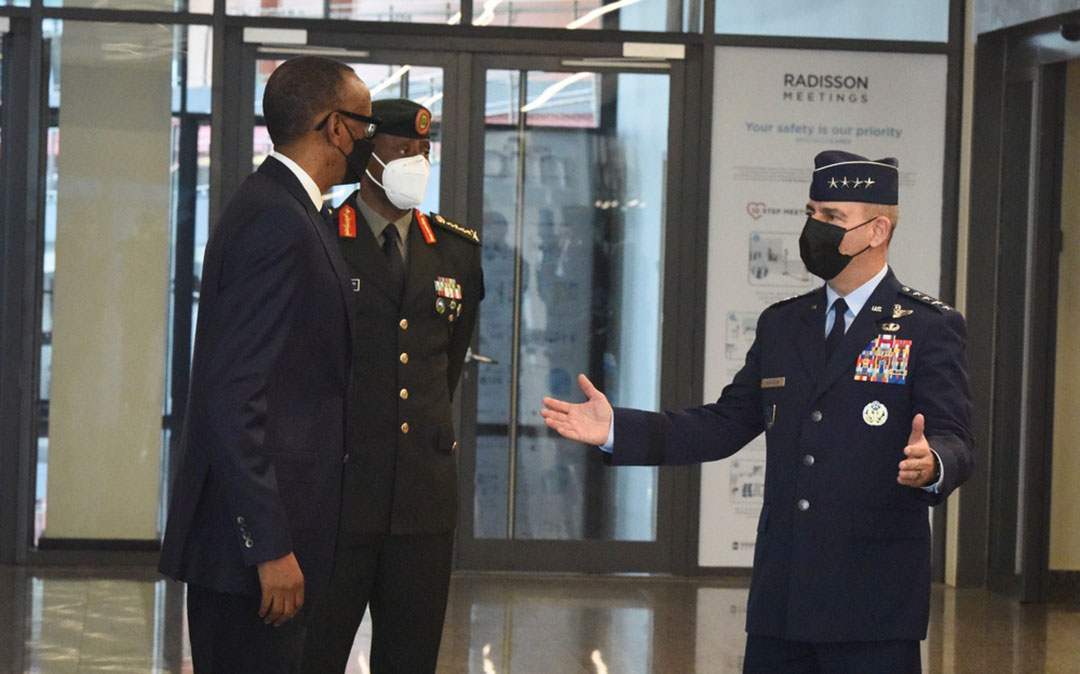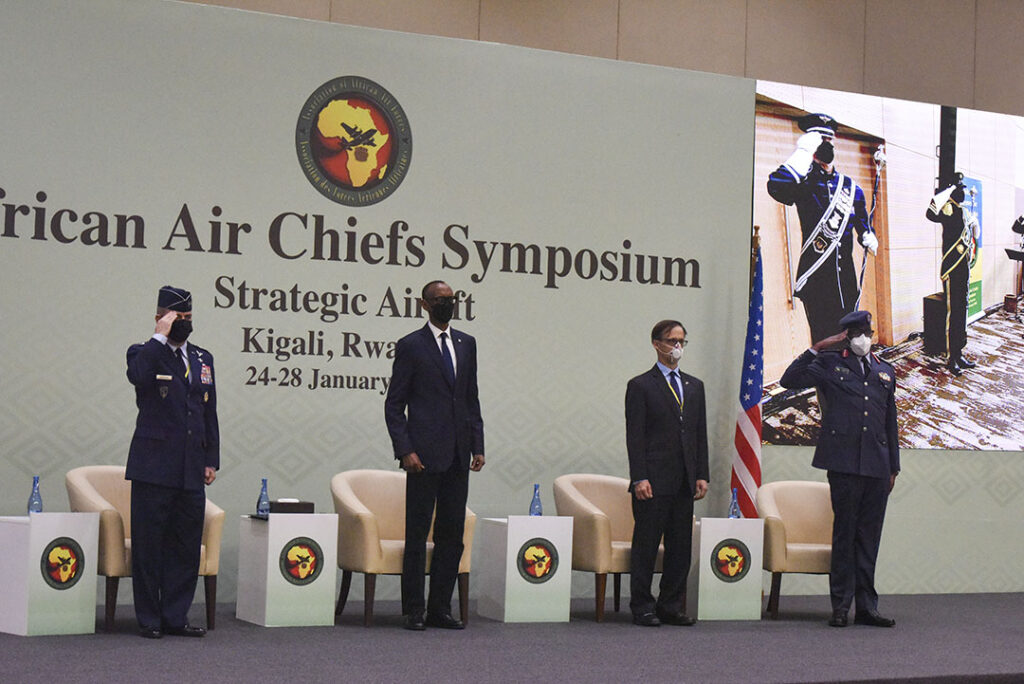ADF STAFF
African Air Force leaders came away with a spirit of cooperation and a greater understanding of other countries’ capabilities after attending the 11th annual African Air Chiefs Symposium (AACS).
Thirty-two air chiefs and senior officials attended the five-day-event that ended January 28 in Kigali, Rwanda. The Rwanda Defence Force (RDF) and U.S. Air Forces Africa co-hosted the event.
The theme of the symposium was “strategic airlift,” which is particularly relevant as countries look for ways to transport troops, equipment and humanitarian assistance to the places where they are needed most.
“Strategic airlift is critical to our operations both within and without our borders,” Col. Ronald Rwivanga, spokesperson for the RDF, told ADF. “I believe the theme of the 11th AACS was timely and necessary because our militaries need this in peacekeeping operations and other military engagements, such as the fight against terrorism on the continent. The U.S.-Africa partnership in improving strategic airlift is vital in growing our individual state as well as collective capacities to achieve our military objectives.”
Rwivanga said these partnerships are on display in Mozambique where Rwanda is working alongside nations from the Southern African Development Community to defeat an extremist insurgency.

“One state would find it challenging to keep the momentum going, but our collective effort gets the job done with ease and continuity,” Rwivanga said.
Burundi National Defence Force Brig. Gen. Hermalas Ndabashinze told Rwanda’s RTV News that he left the symposium with a better understanding of how countries can cooperate on air missions.
“We’ve taken a step toward what we think is the right thing to do, which is partnership in this regard without any challenges within Africa,” Ndabashinze said. “For instance, if one country is first with any trouble, how can we help such a country, between helping people and restoring peace? So, through this symposium, we’ve taken significant steps.”
That was precisely the aim of the symposium, which Rwandan President Paul Kagame opened by commending the U.S. Air Forces in Europe-Air Forces Africa (USAFE-AFAFRICA), for continuously supporting African air forces.
Because many of the continent’s emerging security challenges are transnational, no one country has the resources to respond to them alone, Kagame said.
“We must therefore prioritize partnerships,” Kagame said in the RTV News report. “The benefits of working together are clear.”
Kagame said that, besides helping transport cargo and troops, cooperating nations have greater access to quality aircraft and can create opportunities for special training for pilots and maintenance crews, while modernizing air traffic control capabilities, air facilities and air-to-ground communications.
“Threats are increasingly being posed by highly mobile forces, and as such, airborne intelligence surveillance and reconnaissance are critical,” Kagame said. “Funding will continue to be a challenge, but we can’t afford to [let that] override our commitment to stability on the continent. Let’s continue working together to see tangible results.”
During the symposium, Gen. Jeffrey Harrigian, USAFE-AFAFRICA commander, said that it is time to address security issues in real life and “make actionable items a reality.”
“This team continues to work together to not only focus on broadly the concepts but also the people, because our people remain our most important resource,” Harrigian said. “All of our discussions were underpinned by what I saw as continued growth in our ability to share information.”
Attending the symposium were air chiefs from Angola, Benin, Botswana, Burkina Faso, Burundi, Cameroon, Chad, Côte d’Ivoire, the Democratic Republic of the Congo, Egypt, Gabon, Ghana, Guinea-Bissau, Kenya, Lesotho, Libya, Madagascar, Malawi, Mauritania, Morocco, Namibia, Niger, Nigeria, Republic of the Congo, Rwanda, Senegal, Sierra Leone, Somalia, Tanzania, Togo, Tunisia and Zambia.
Two new countries –– Burundi and Gabon –– officially became Association of African Air Forces charter members during the event. Senegal announced it will host next year’s symposium.

